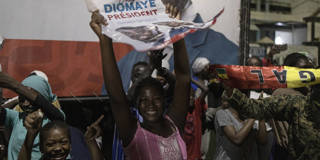Bassirou Diomaye Faye’s resounding victory in Senegal's presidential election gives him strong mandate to pursue measures against corruption and in favor of economic inclusion. But before he can deliver on these campaign promises, he first must shore up the country's democratic institutions and system.
WASHINGTON, DC – Although Senegal’s GDP is dwarfed by that of the West African giant Nigeria, this small country with an open economy plays an outsize role on the continent, owing to its status as a “maturing democracy.” Senegalese pride themselves for having never suffered a coup since achieving independence from France in 1960. That record stands in stark contrast to the rest of the region, where, just in the past few years, governments have been overthrown in Guinea, Mali, Burkina Faso, Niger, and Gabon.

WASHINGTON, DC – Although Senegal’s GDP is dwarfed by that of the West African giant Nigeria, this small country with an open economy plays an outsize role on the continent, owing to its status as a “maturing democracy.” Senegalese pride themselves for having never suffered a coup since achieving independence from France in 1960. That record stands in stark contrast to the rest of the region, where, just in the past few years, governments have been overthrown in Guinea, Mali, Burkina Faso, Niger, and Gabon.